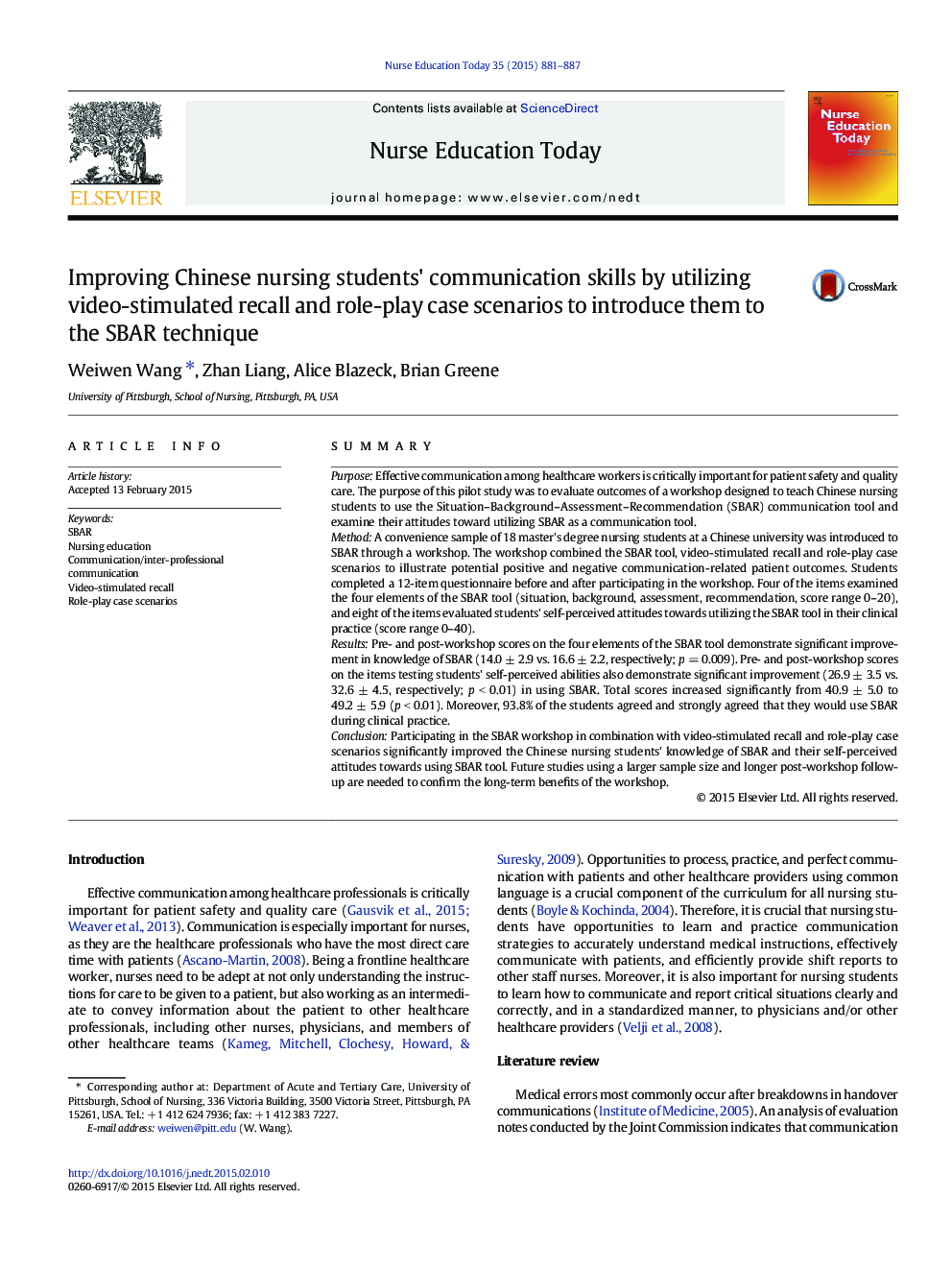| کد مقاله | کد نشریه | سال انتشار | مقاله انگلیسی | نسخه تمام متن |
|---|---|---|---|---|
| 368256 | 621572 | 2015 | 7 صفحه PDF | دانلود رایگان |
SummaryPurposeEffective communication among healthcare workers is critically important for patient safety and quality care. The purpose of this pilot study was to evaluate outcomes of a workshop designed to teach Chinese nursing students to use the Situation–Background–Assessment–Recommendation (SBAR) communication tool and examine their attitudes toward utilizing SBAR as a communication tool.MethodA convenience sample of 18 master's degree nursing students at a Chinese university was introduced to SBAR through a workshop. The workshop combined the SBAR tool, video-stimulated recall and role-play case scenarios to illustrate potential positive and negative communication-related patient outcomes. Students completed a 12-item questionnaire before and after participating in the workshop. Four of the items examined the four elements of the SBAR tool (situation, background, assessment, recommendation, score range 0–20), and eight of the items evaluated students' self-perceived attitudes towards utilizing the SBAR tool in their clinical practice (score range 0–40).ResultsPre- and post-workshop scores on the four elements of the SBAR tool demonstrate significant improvement in knowledge of SBAR (14.0 ± 2.9 vs. 16.6 ± 2.2, respectively; p = 0.009). Pre- and post-workshop scores on the items testing students' self-perceived abilities also demonstrate significant improvement (26.9 ± 3.5 vs. 32.6 ± 4.5, respectively; p < 0.01) in using SBAR. Total scores increased significantly from 40.9 ± 5.0 to 49.2 ± 5.9 (p < 0.01). Moreover, 93.8% of the students agreed and strongly agreed that they would use SBAR during clinical practice.ConclusionParticipating in the SBAR workshop in combination with video-stimulated recall and role-play case scenarios significantly improved the Chinese nursing students' knowledge of SBAR and their self-perceived attitudes towards using SBAR tool. Future studies using a larger sample size and longer post-workshop follow-up are needed to confirm the long-term benefits of the workshop.
Journal: Nurse Education Today - Volume 35, Issue 7, July 2015, Pages 881–887
